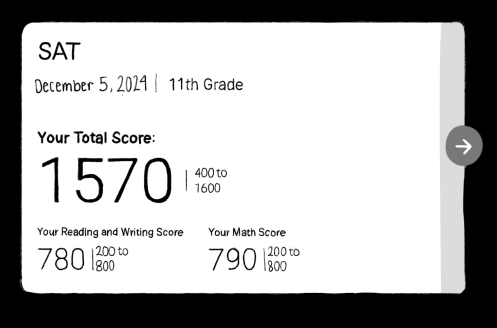In defense of Common Core
February 26, 2014
Common Core, a recently implemented standardization of education in America, is always under the watchful glare of hesitant teachers and critics. Their caution is justifiable: the Common Core system introduces learning targets that are daunting to many, and is largely different from No Child Left Behind (previous federal legislation for education, which Liberty students know as the instigator of HSPE tests). The general opinion at Liberty about Common Core is negative; students find the pretests annoying and the new textbooks an inconvenience. I feel the same way about the cumbersome transition to Common Core, but I’m not opposed to its implementation—here’s why.
Contrary to popular belief, Common Core was not concocted by the federal government as a means to robotize public school students. The system was a proposal from a group of states, developed with the intention of replacing the undesirable education system that President Bush had created with No Child Left Behind. Each state decided whether or not to adopt it, and most individual districts have the option to opt out; exceptionally-performing districts aren’t being forced to lower their standards to accommodate the new system.
The main source of discontent among parents and educators is that, unlike NCLB, Common Core standardizes exams across the nation. It gives educators a sense of being controlled, or restrained; for most schools, the standards have been raised, pressuring teachers to economize their time to add information. However, Common Core does not instruct teachers on how they teach their students—only the outcomes of it. The new material will make a rough transition, but teachers aren’t being told what to do; only what their students have to know by the end of the year. Students will learn the same fundamental material state-to-state which will help students emerge from high school better prepared for college.
Preparing students for university and competition in the global economy is central to the philosophy of Common Core. Since colleges themselves are more standardized than high schools are, I have no objection. The system promotes higher-level thinking, is skills-based, and has an interdisciplinary approach. It takes into account the needs of college professors and business leaders, refining education so it is based increasingly on optimizing student’s possibilities for the future. Overall, Common Core sounds to me like it would benefit Liberty.
Of course, I can’t write this article without acknowledging the cons of Common Core, which are abundant. The system is new, which means many aspects of it are experimental—they may sound promising, but there is yet to be any proof about whether they will work. The standardization may take away from diversity in nationwide education. Many teachers are struggling with the transition, and with the A/B day schedule at Liberty, raising the bar will prove to be a challenge. Computer-based assessment could become problematic for schools with limited computer access. And implementing the system has already cost the United States $16 billion. But in the face of all the drawbacks, I remain optimistic about how Common Core will change American education, and I agree with Liberty Administrator Donna Hood’s words on the subject: “I am not afraid of different”.











